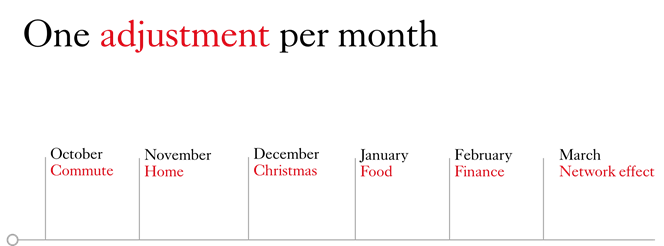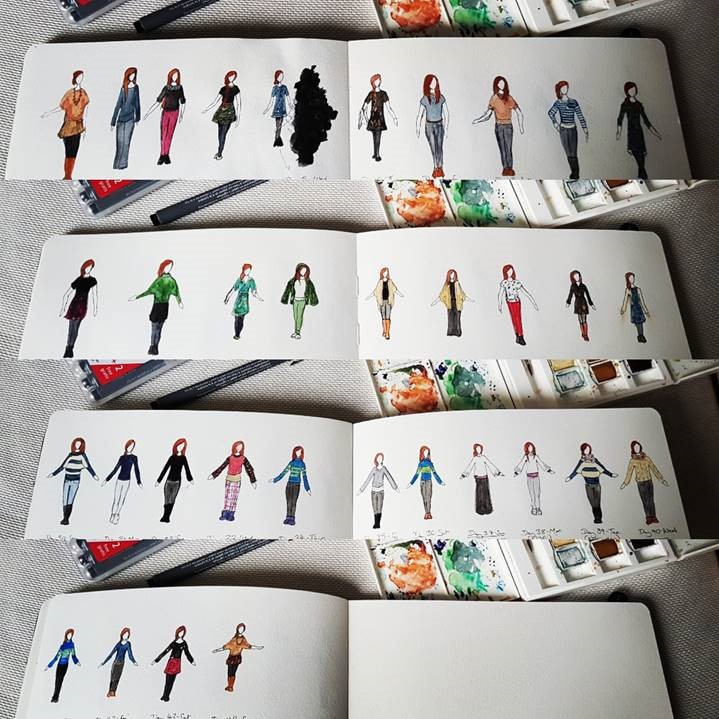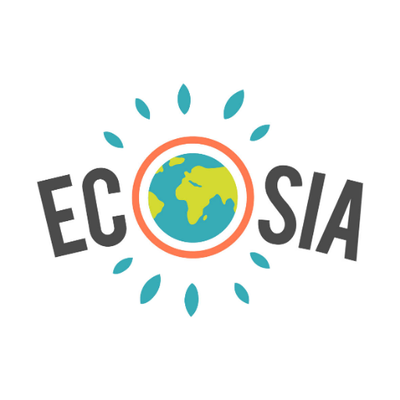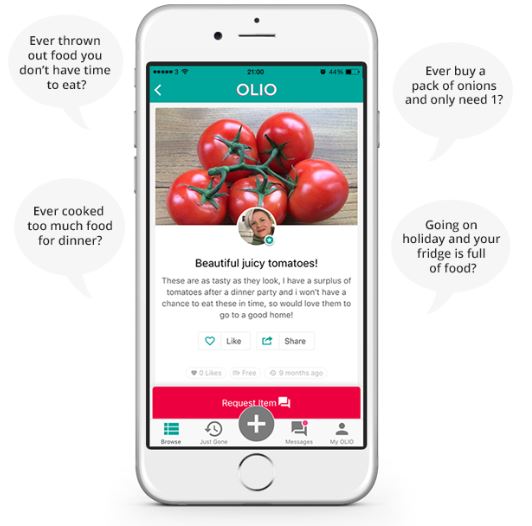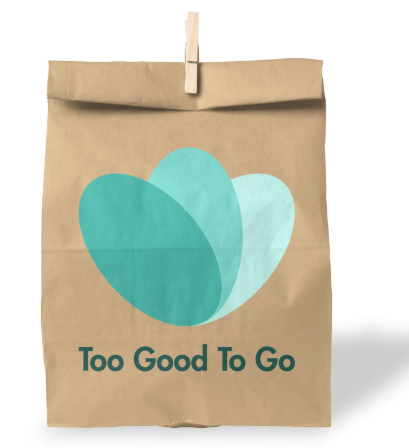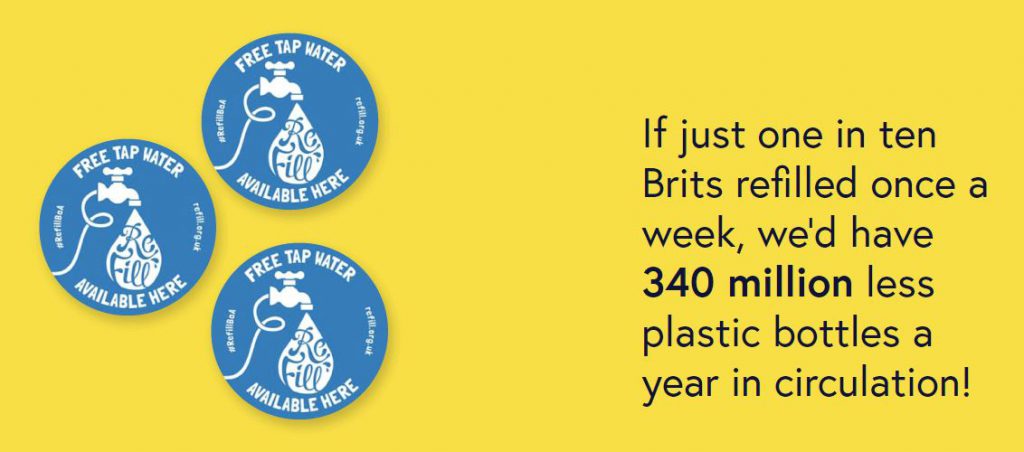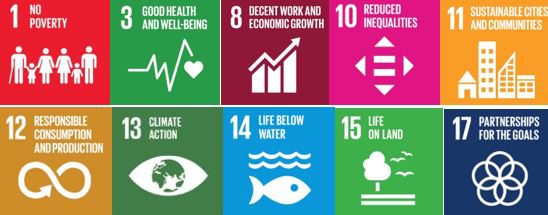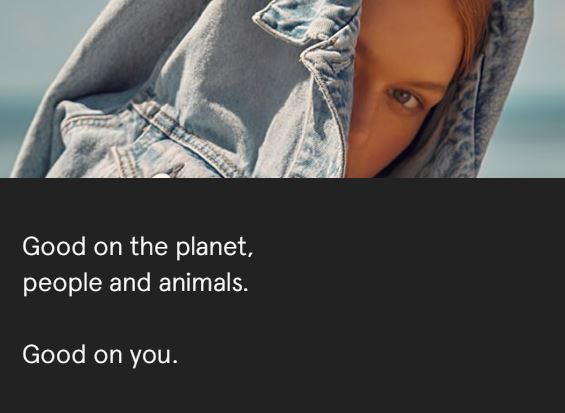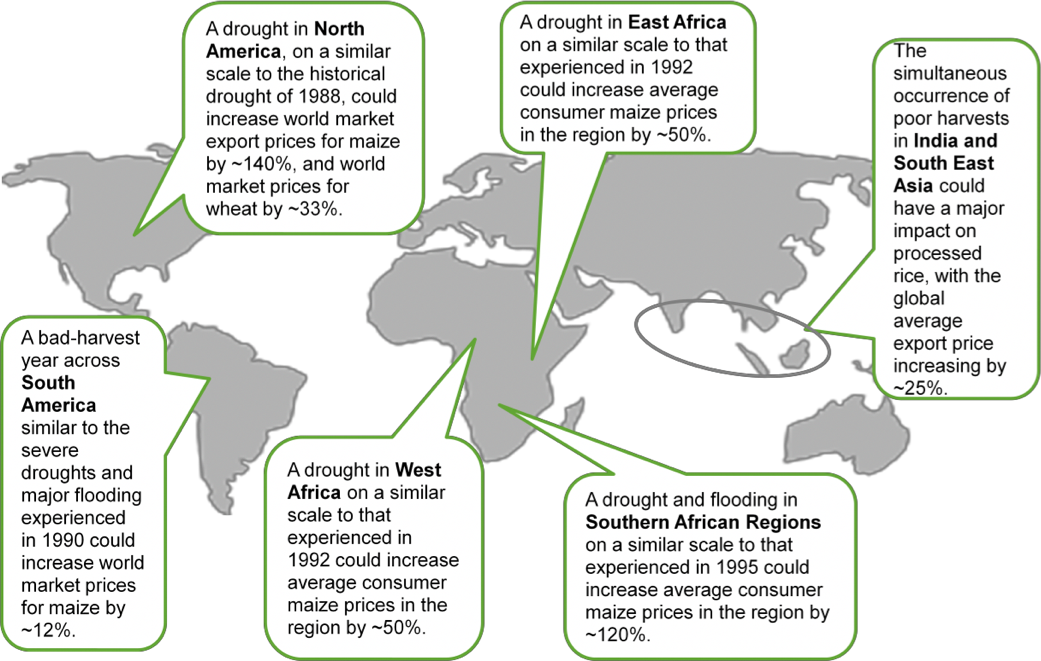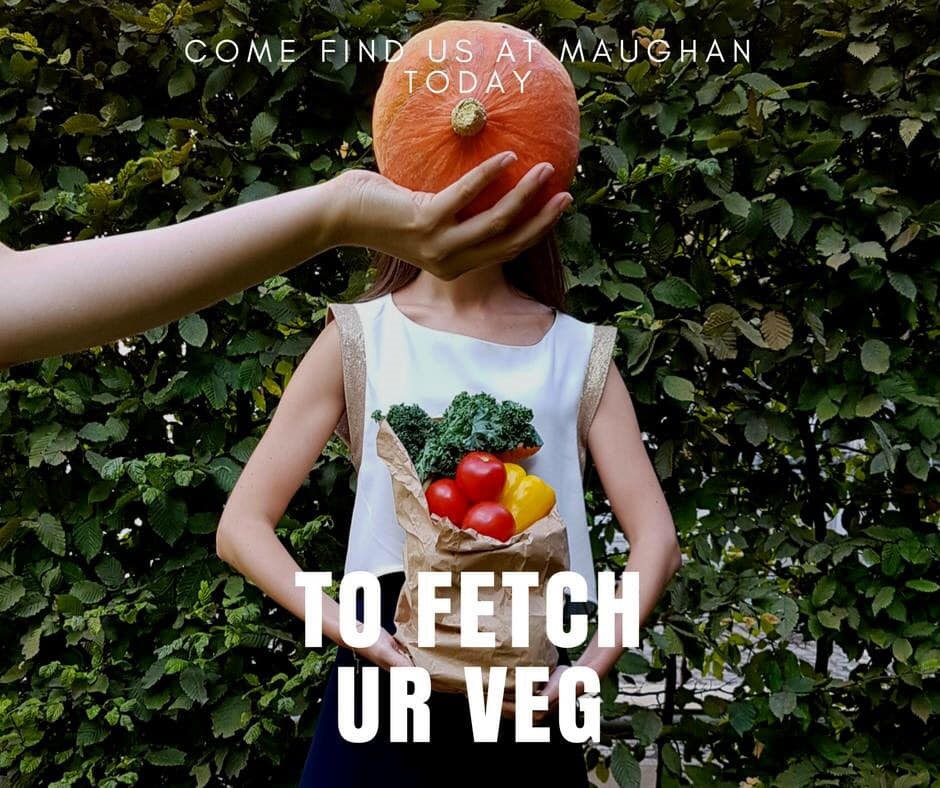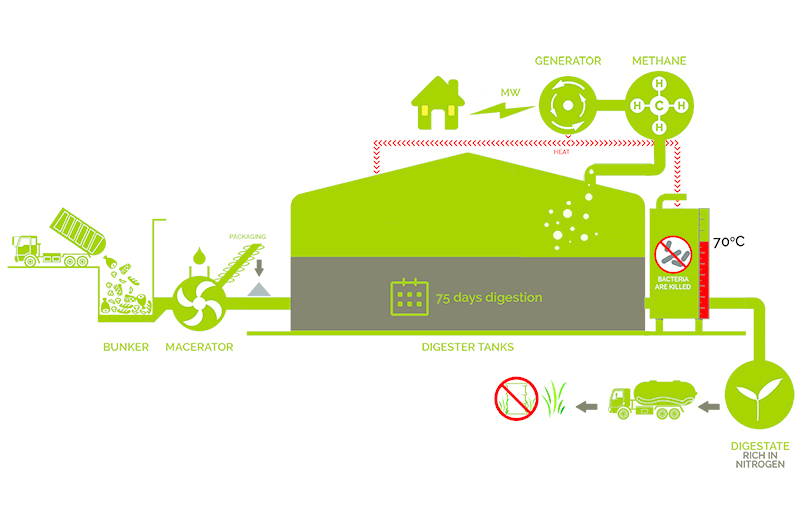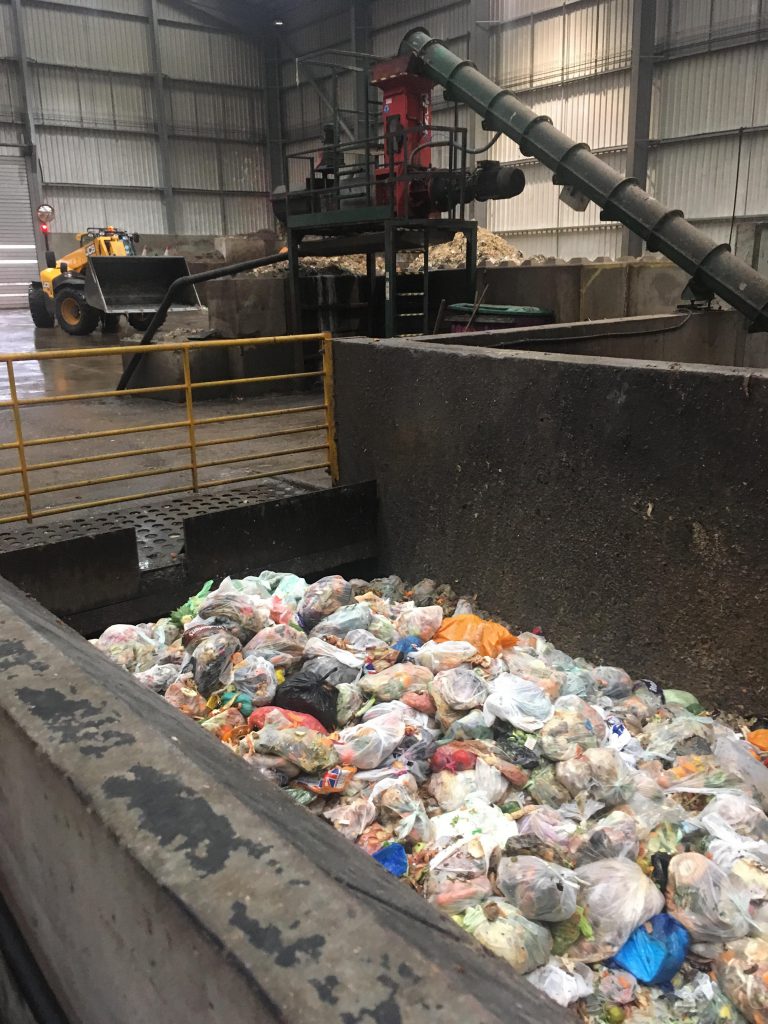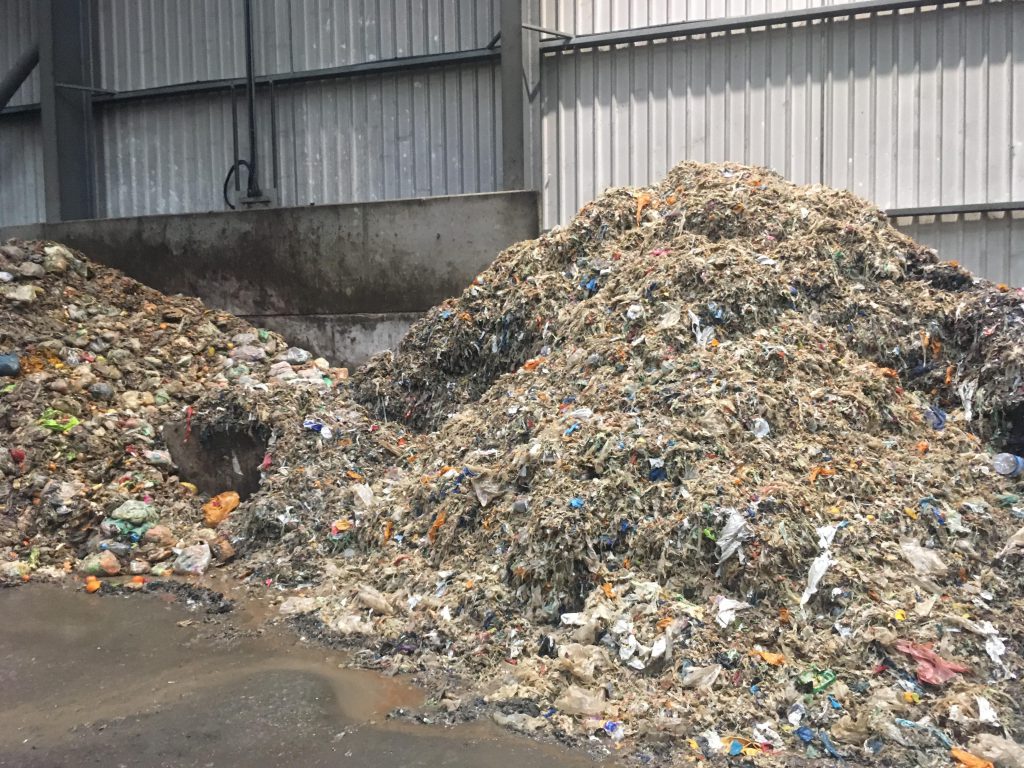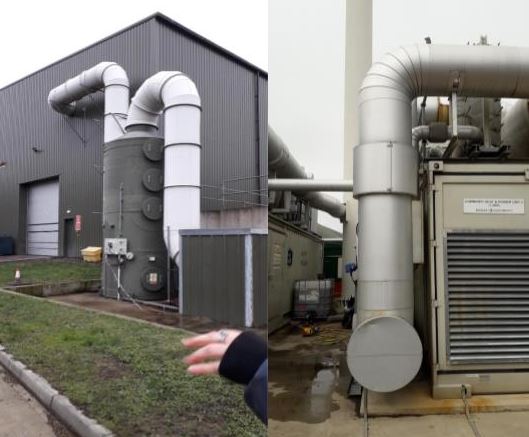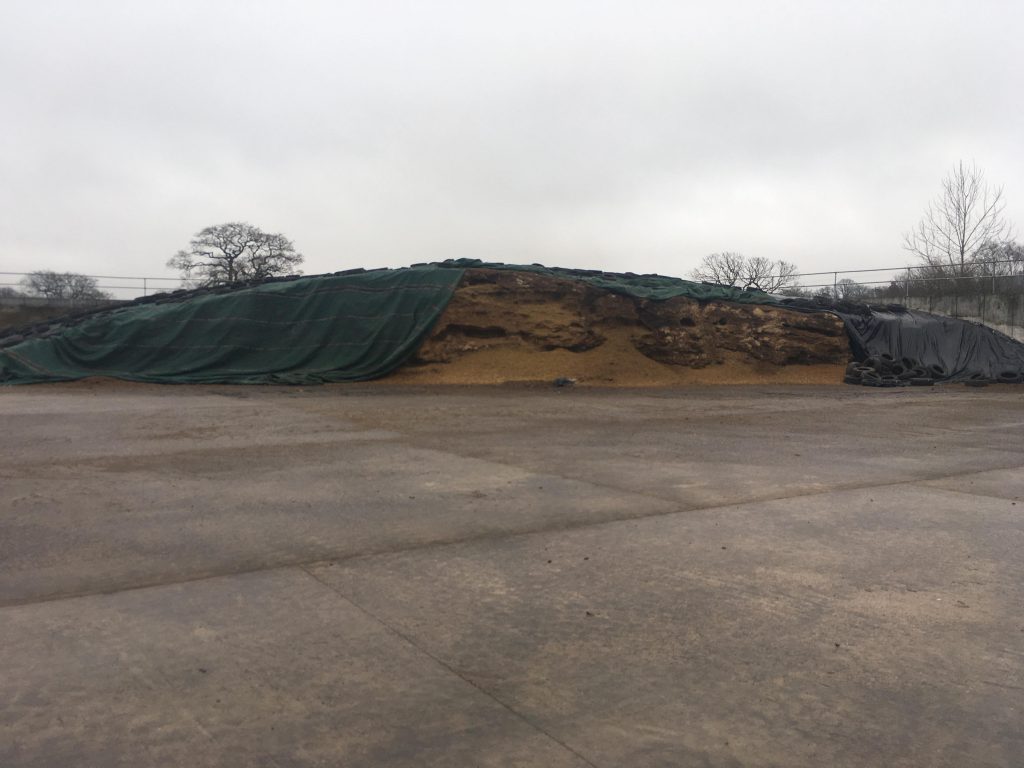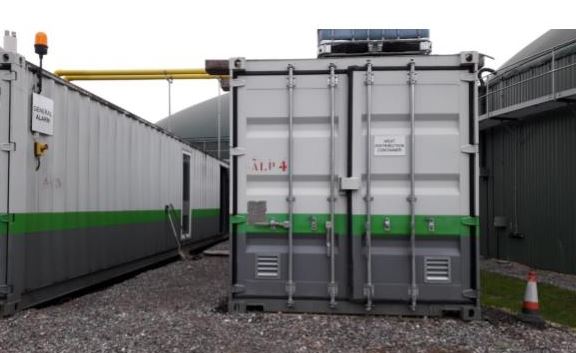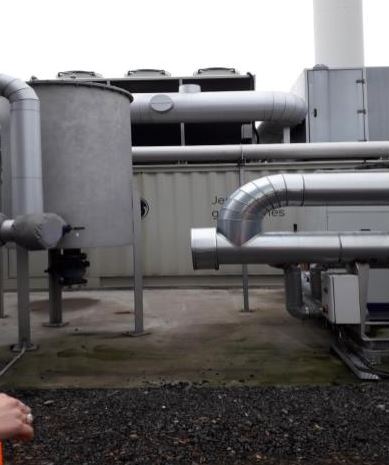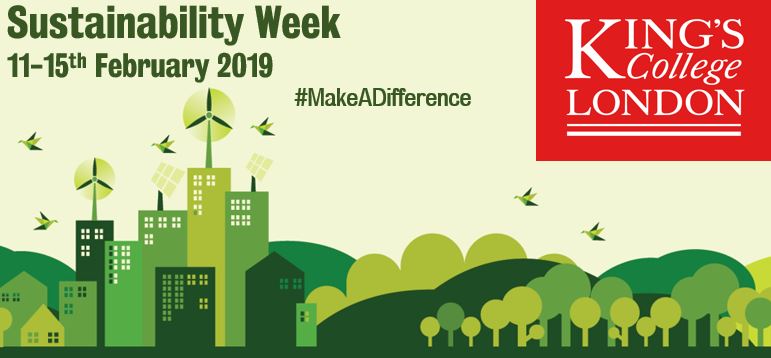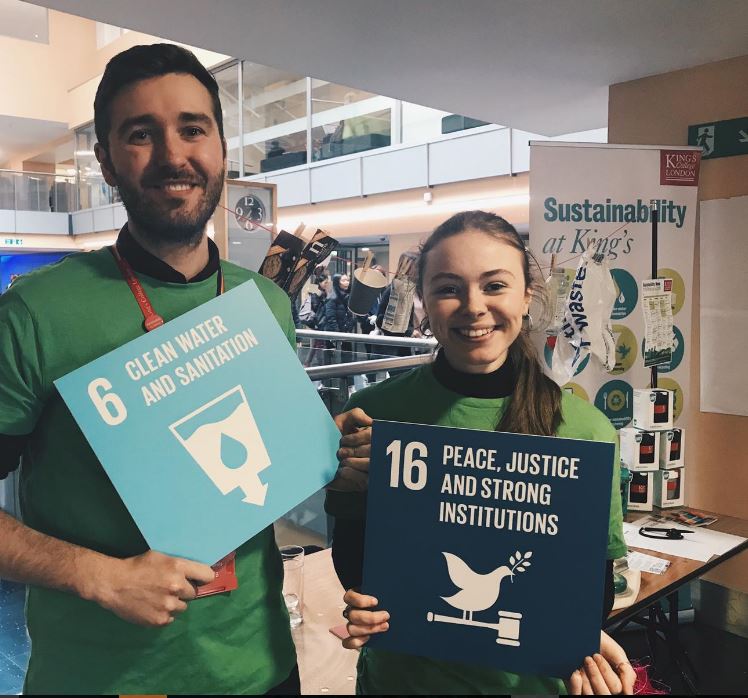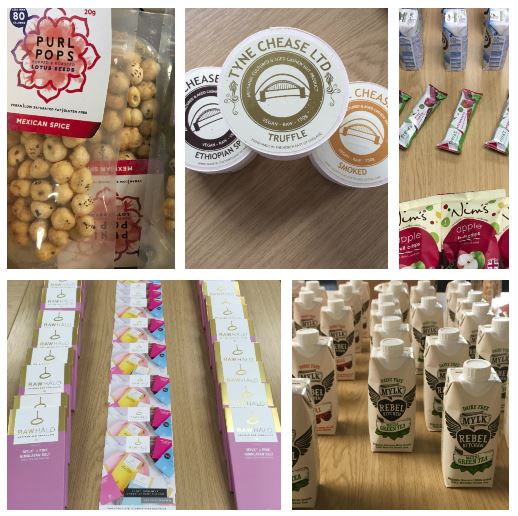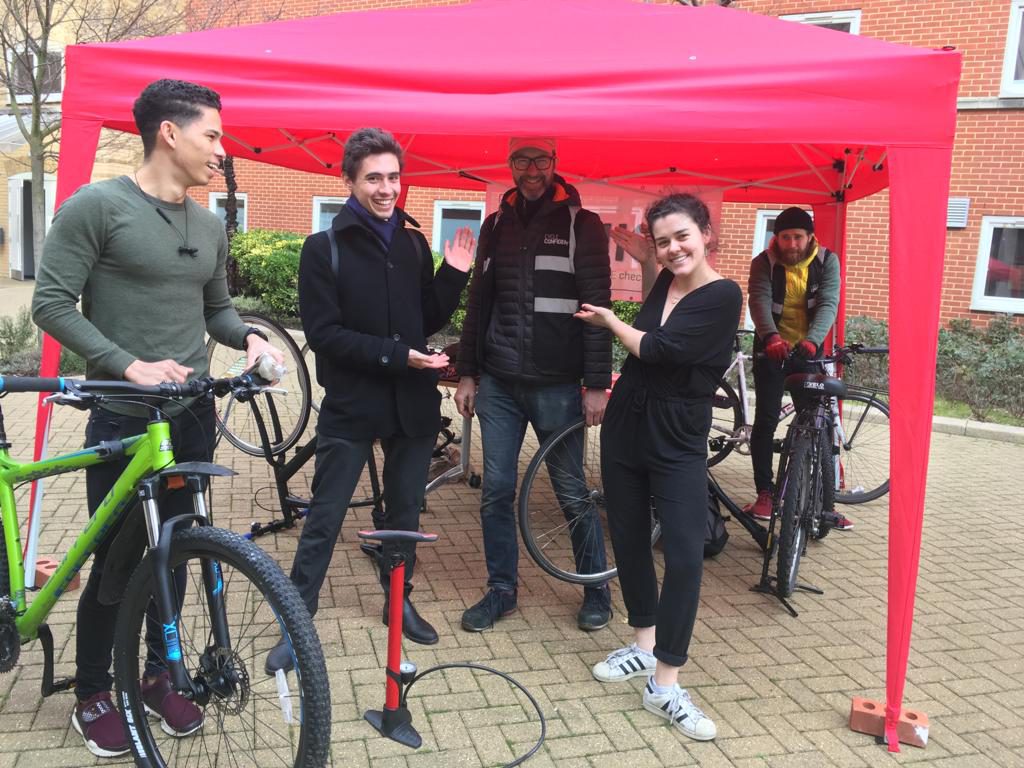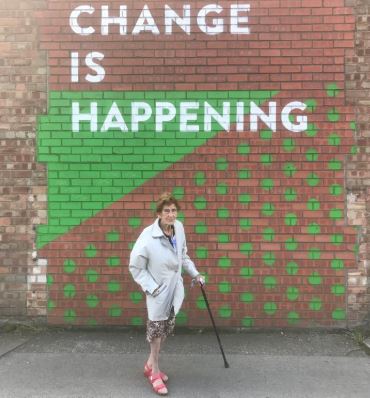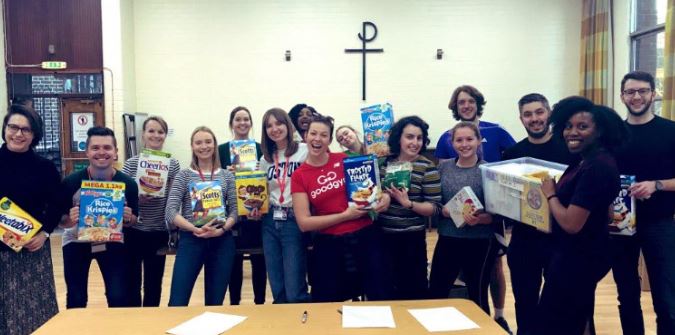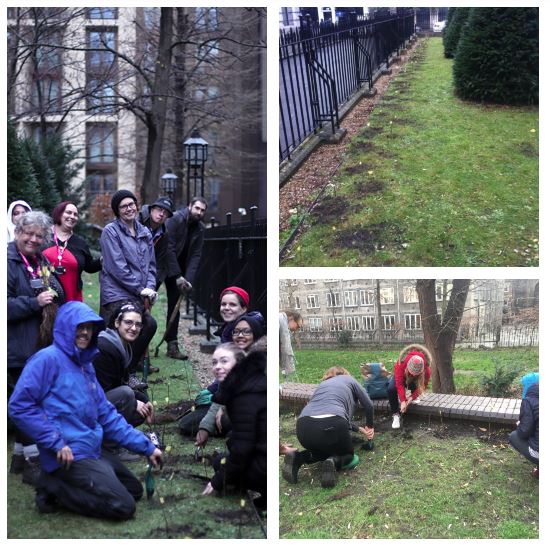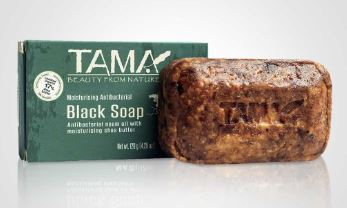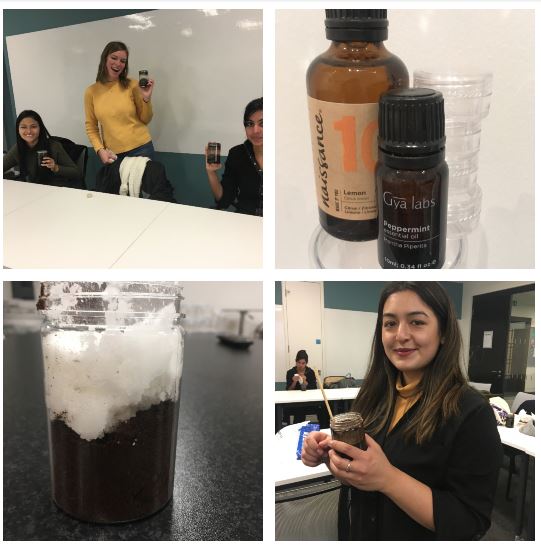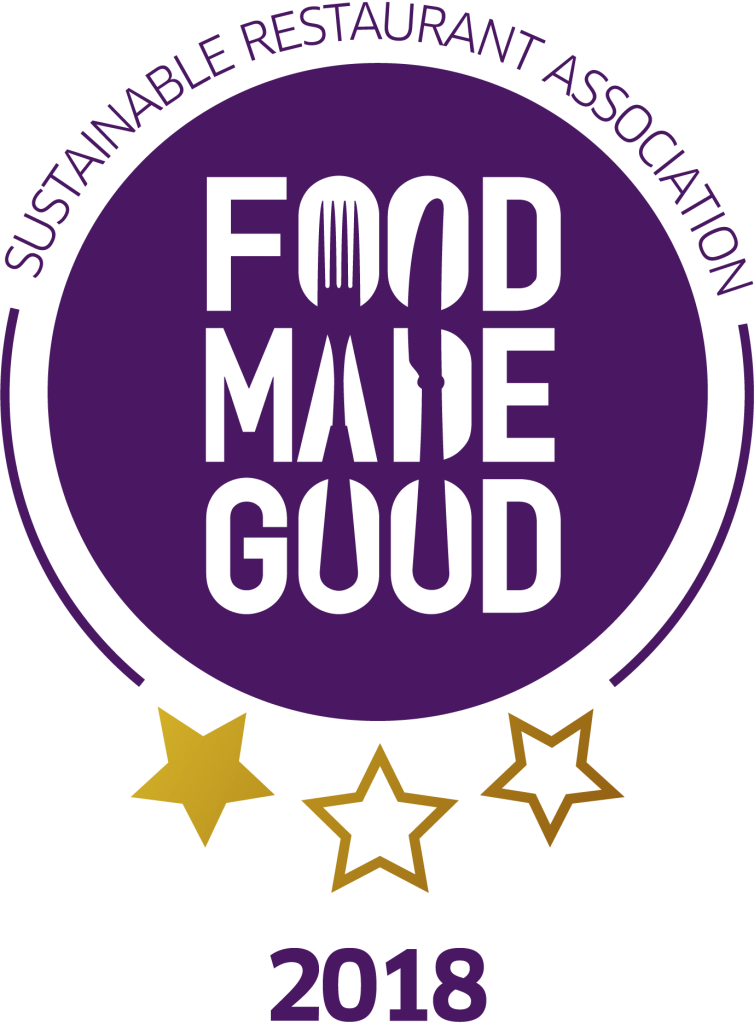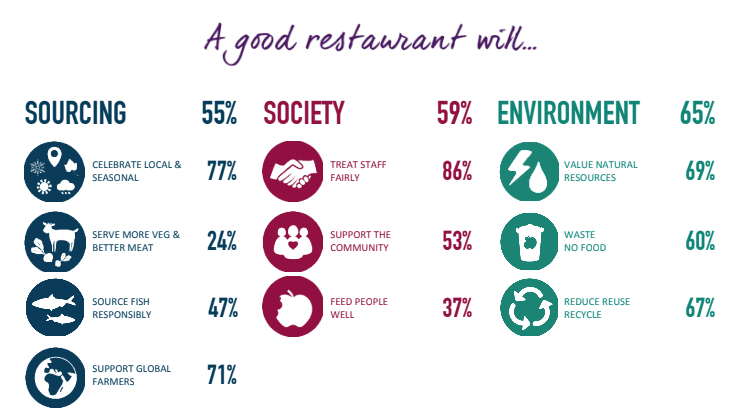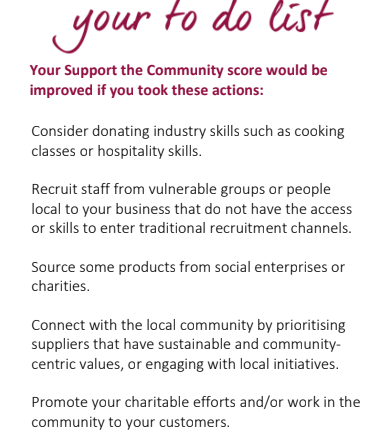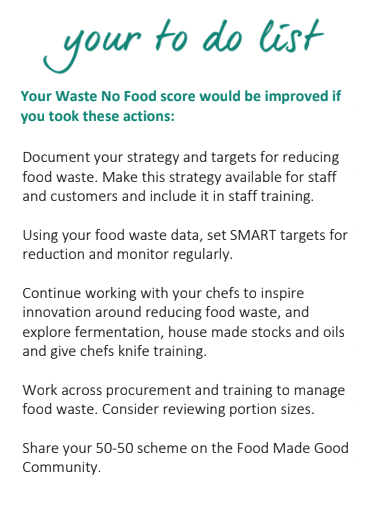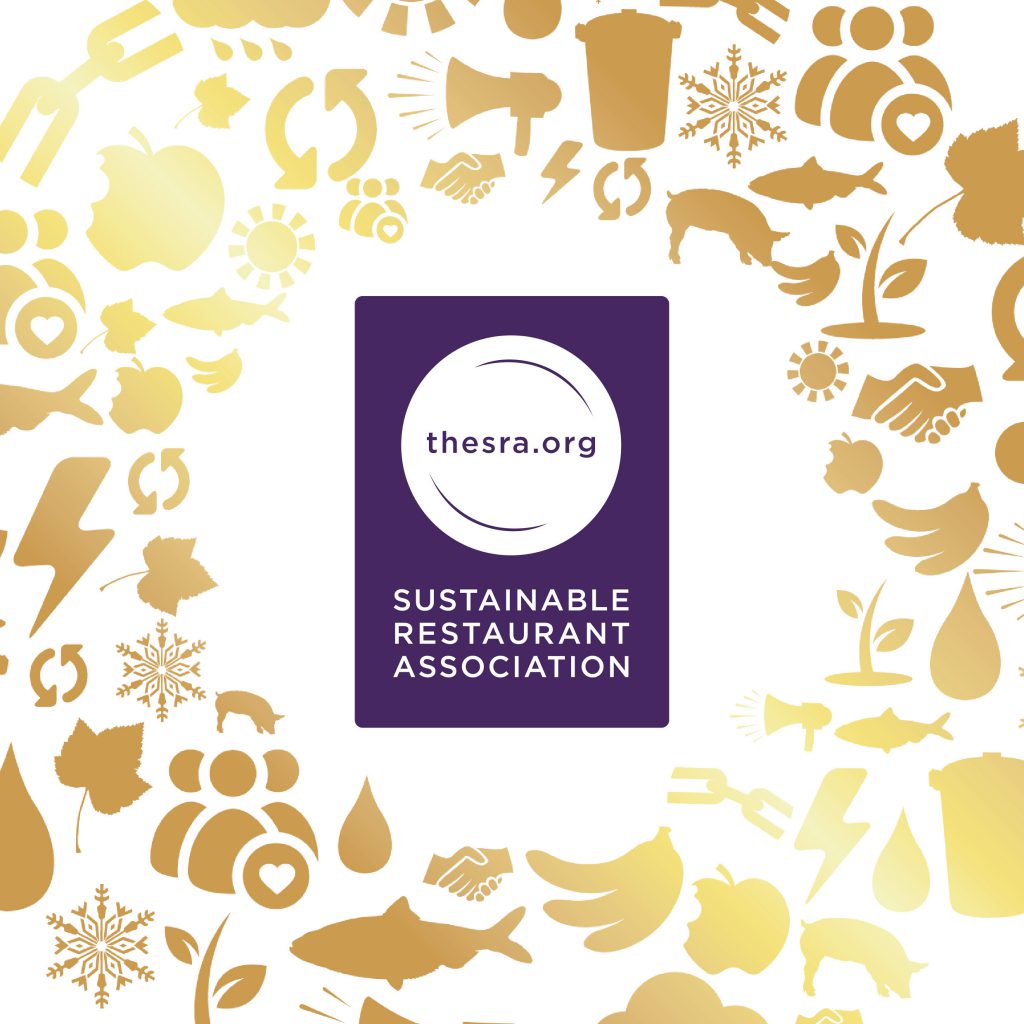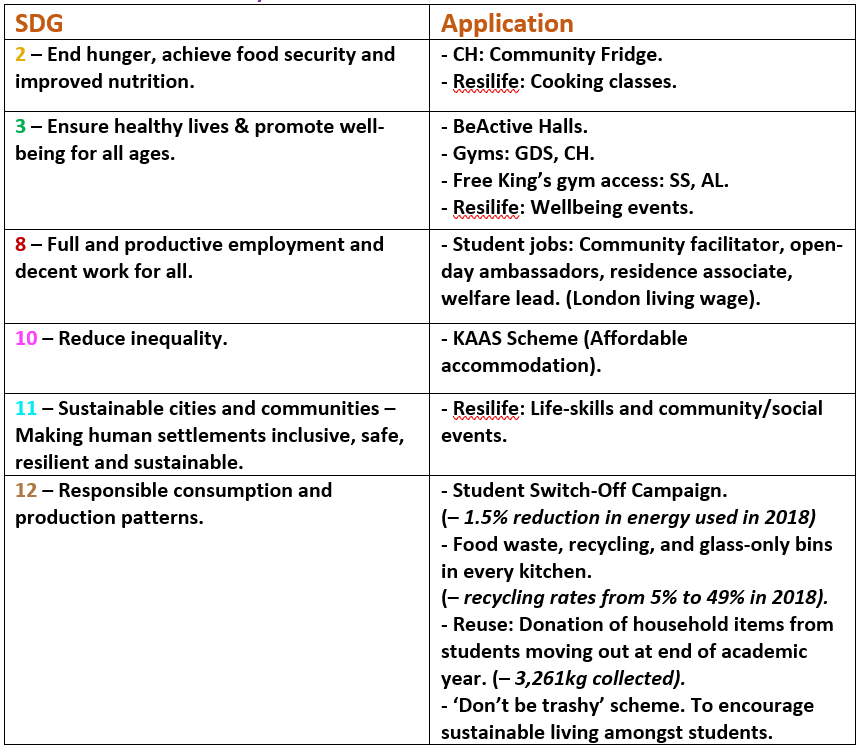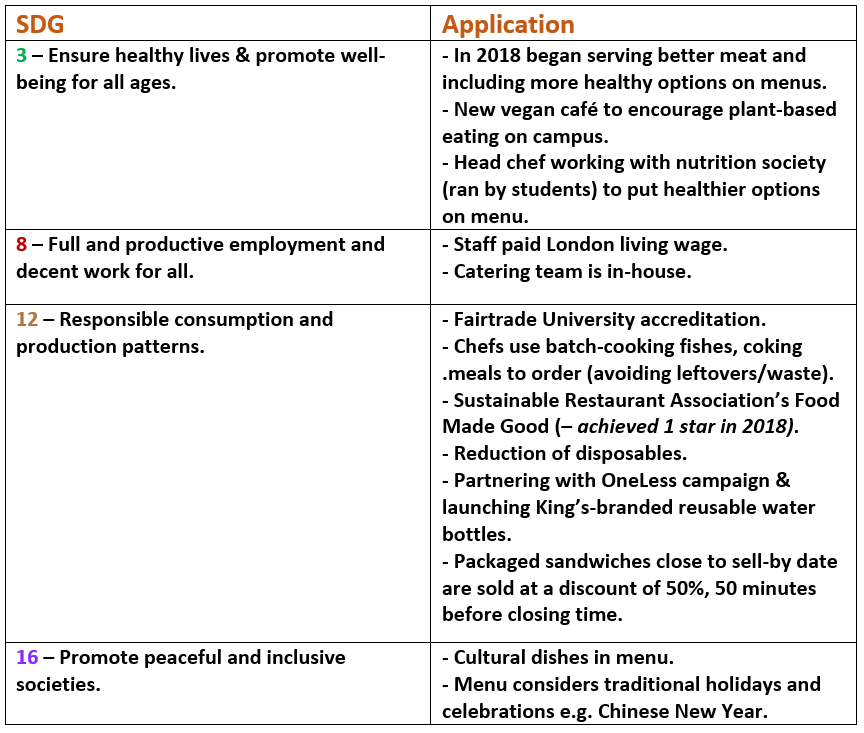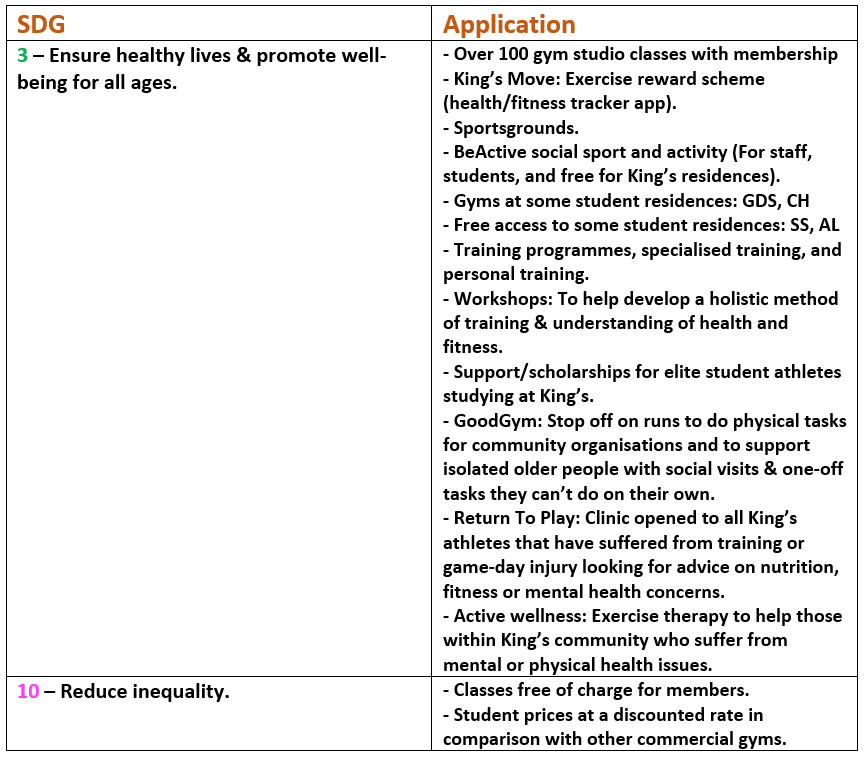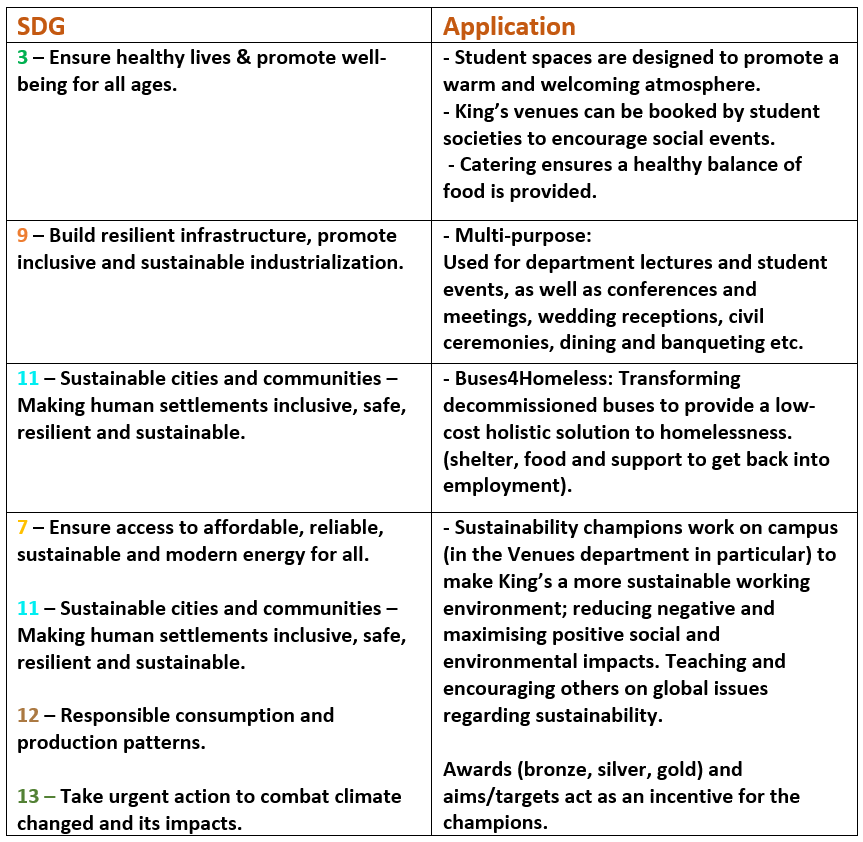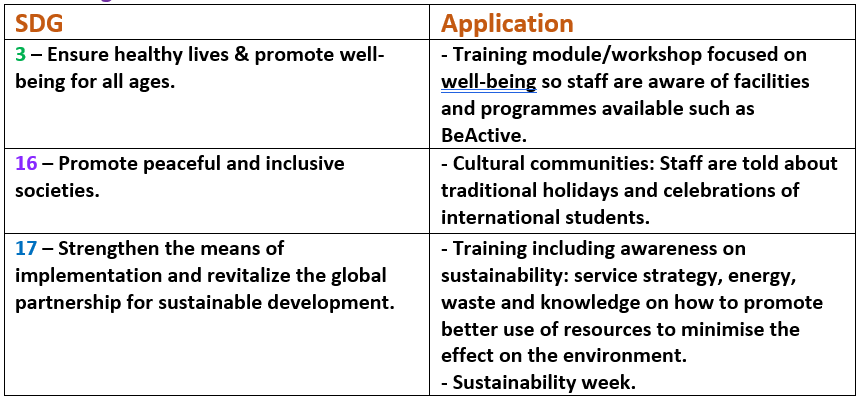This guest blog comes courtesy of Ellie Blackmore, Marketing Coordinator for King’s Food.
Your morning coffee. You can’t function without it. Hitting a lecture without even a sip of caffeine? No thanks. But without a reusable cup, whether it’s a Keep Cup, a fancy bamboo tumbler you got for Christmas, or your dads old golfing flask, you’re contributing to the 2.5+ billion coffee cups that are thrown away every year, with less than 1% being recycled (Environmental Audit Committee, 2018).
This isn’t down to not trying – many people make the conscious effort to put the cardboard vessel that carried their morning latte in a recycling bin. The problem with this is that most disposable coffee cups have plastic in their inner lining, to make them both heat and leakproof, which stops them from being recycled and sends them straight to landfill.
Special recycling bins are few and far between, but King’s Food have installed them in all of their outlets. Simply pour any liquid into the centre of the bin, then pop your cup in the outer holes. Got a reusable cup? Even better, and no extra 20p cup levy charge* for you. Want a reusable cup? Pick one up at King’s Food cafes for £6.50.
King’s Food was recently awarded a 2-star Food Made Good Rating in recognition of commitments to sustainable catering – one of only seven British universities to have achieved this status. A 9% increase on last year’s score, highlighted successes include fair treatment of staff (e.g. all staff at King’s are paid London Living Wage), valuing natural resources (e.g. 100% electricity at King’s comes from renewable, wind energy) and celebrating local & seasonal products.
Local produce plays an important part of King’s Food, with elements of every day menus being sourced in London and the rest of the UK. Honey, from Bermondsey Street Bees, features in breakfast pots and the porridge bars at Chapters and Bytes Restaurant. Bread and pastries are supplied by Paul Rhodes, an award-winning bakery in Greenwich. King’s Food catered events offer attendees the chance to sip on cider made from London-pressed apples, by Hawkes Cidery in Bermondsey.
The positive impact of buying locally is indisputable: from the shorter distance the food travels, to the support it provides to local farms, communities and businesses. Not to mention the richer flavours and nutrients of the produce itself, all of which contribute to the delicious and sustainable food served at King’s Food venues.
One of many efforts to increase sustainability, Roots – King’s Food’s all-vegan café on the 8th floor of Bush House – opened in September 2018. Offering a selection of snacks, desserts, coffee and a different hot lunch every day, Roots is the first 100% plant-based university café in London. For the opening of Roots, the 2019 Green Gown Awards shortlisted King’s Food as a finalist in the Campus Health, Food and Drink category. The winner will be announced at the awards ceremony on November 26th.
Alongside Roots, King’s Food is committed to offering a vegetarian or vegan option every day at all of its outlets.
The Food Made Good rating offers advice on how King’s Food can make further improvements to become even more sustainable and to drive change in the sector.
King’s Food will focus on the following over the rest of the academic year:
- Continue with our focus on using local suppliers and explore using more produce from within 100 miles of London – which will likely increase the amount of produce which is organic.
- Keep investigating ways to reduce energy & water usage across all sites
- Look into our use of disposable packaging and how we can reduce it
- Develop a strategy or policy around healthy eating/menu planning
- Consider ways to further minimise food waste
*In February, King’s Food introduced a 20p cup levy to try and cut down the number of hot drinks sold in disposable cups across King’s campuses. Proceeds from the levy go into a Sustainability Projects Fund (SPF), the total of which is currently around £65,000. Applications for sustainability projects will open soon. KCLSU also committed their 20p disposable coffee cup levy to go into the SPF from August ’19.




